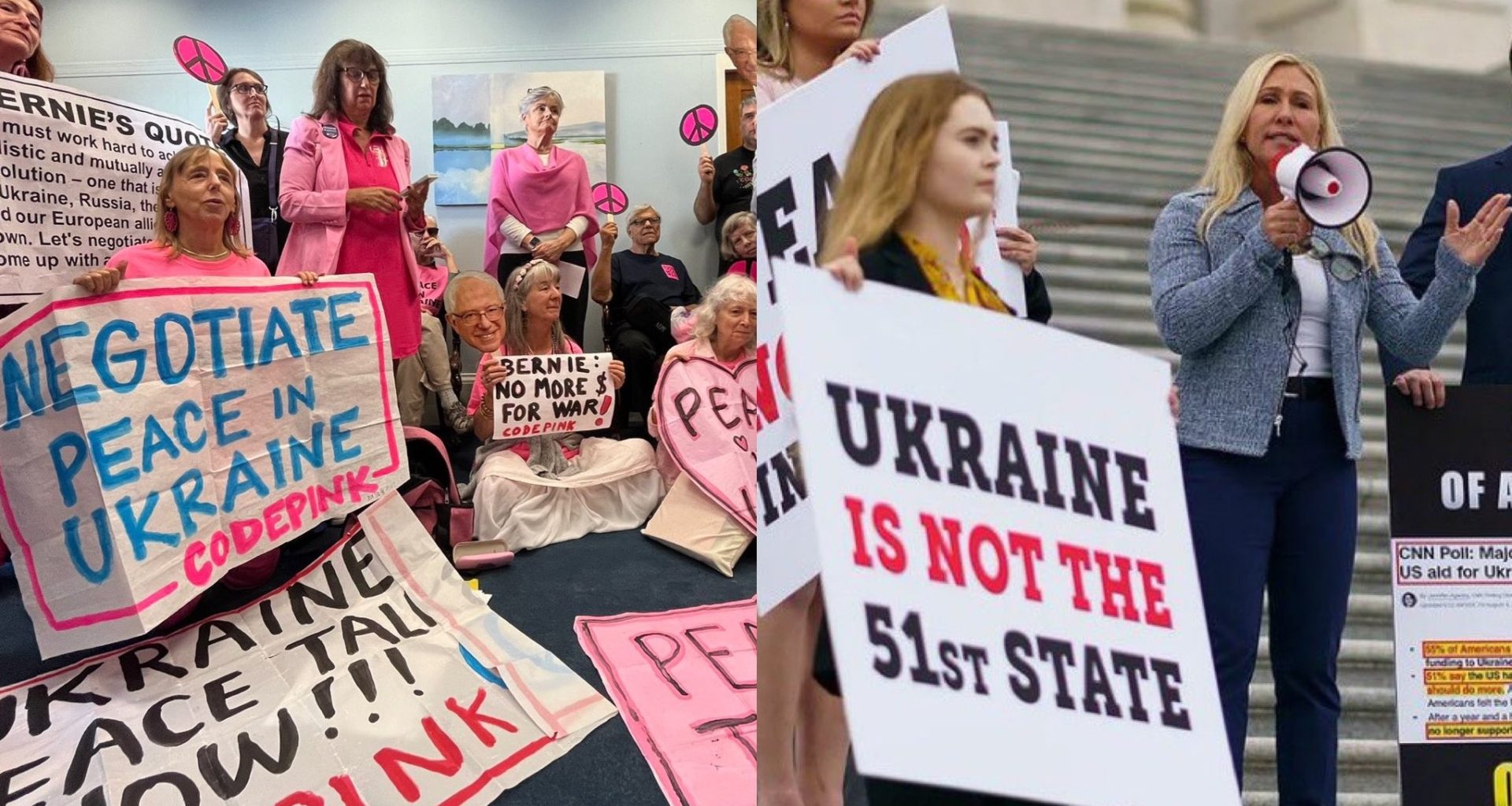As Ukraine continues its struggle against Russian aggression, a number of American groups are working to obstruct vital aid.
A recent project by Ukrainian data journalism media outlet Texty, conducted by Inna Gadzynska, Serhii Mikhalkov, Mykhailo Tymoshenko and Volodymyr Lytvynov reveals a startling network of right-wing politicians, left-wing activists, media personalities, think tanks, and outright Russian propagandists undermining US support for Ukraine.
Congressman Mark Amodei, who in April 2022 praised Ukrainians for their fight for independence and supported all pro-Ukrainian initiatives in Congress, unexpectedly voted against allocating aid to Ukraine in April 2024. This flip-flopping isn't isolated. Senators Tom Cotton and Lindsey Graham, who in May 2023 wrote a letter to President Joe Biden urging him to provide Ukraine with ATACMS missiles ranging from 165 to 270 kilometers, voted against a bill proposing aid for Ukraine in February 2024. Yet, in April, they reversed course again and voted in favor.
How can the inconsistency in some US politicians' decisions regarding Ukraine be explained? According to Texty, the reason behind these fluctuations lies in the significant number of experts, politicians, and media outlets advocating for isolationism in American politics and spreading false narratives about Ukraine. Texty identified 390 individuals and 76 organizations, which include politicians, political movements and groups, media and journalists, experts, and think tanks.
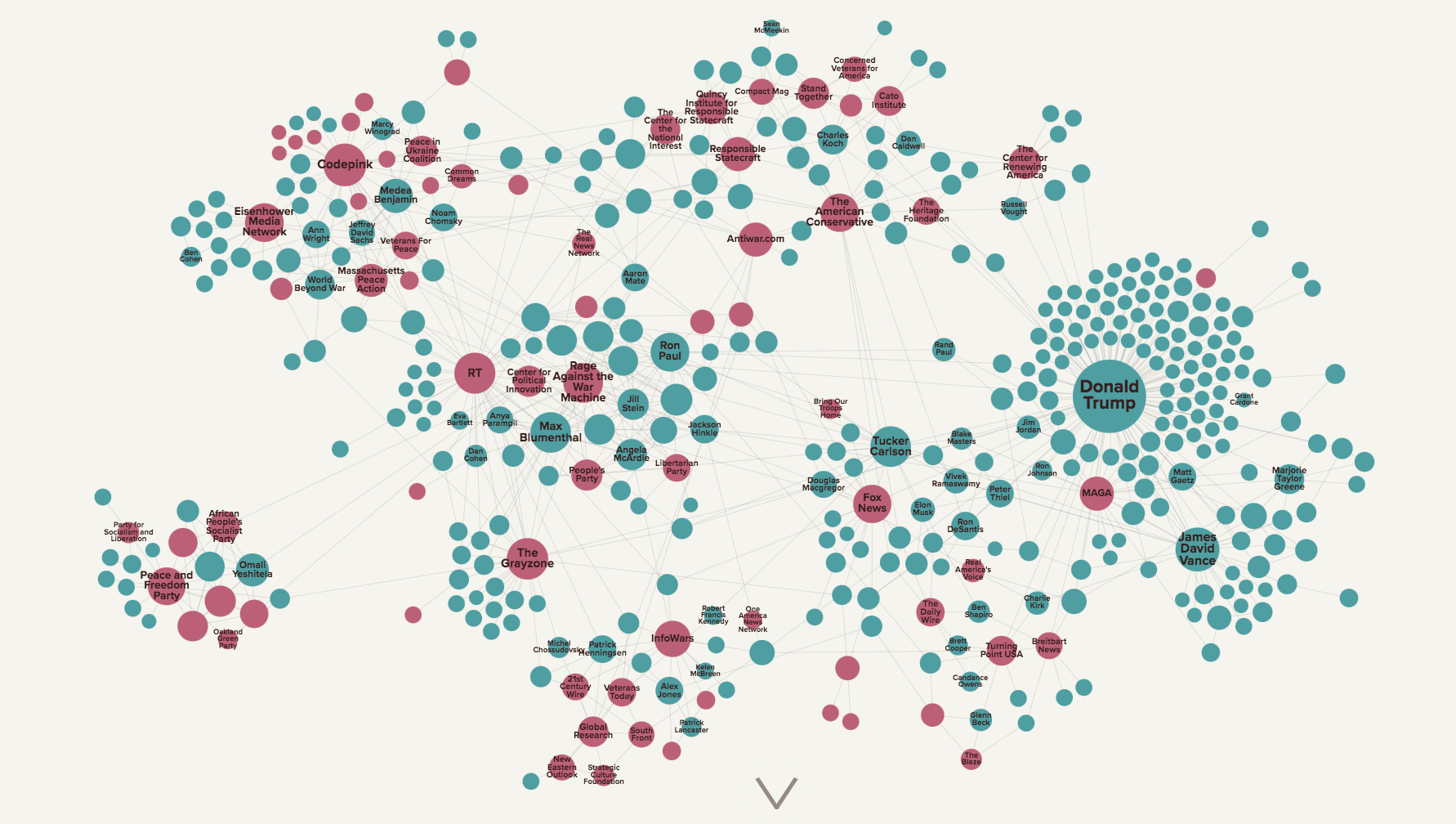
Investors, venture capitalists, and billionaires
Some of America's wealthiest individuals and venture capitalists play a role in undermining aid to Ukraine. Elon Musk, owner of Starlink and X (formerly Twitter), frequently shares with his 187 million followers a highly skeptical view of US financial support for Ukraine. Peter Thiel, founder of PayPal and Palantir, advocates for isolationism and is a key investor in Republicans like Blake Masters and J.D. Vance, who block aid to Ukraine.
Billionaire Vivek Ramaswamy, dubbed "the young Trump," withdrew from the presidential race to support Trump. He advocates for the US to withdraw from NATO and claims that eastern Ukraine does not consider itself part of Ukraine, echoing Putin's rhetoric.
Charles Koch, an American billionaire, is associated with several think tanks like Stand Together, the Quincy Institute for Responsible Statecraft (an organization that advocates for non-interference in US foreign policy), the Cato Institute, and Concerned Veterans for America, which have taken isolationist positions regarding the Russian-Ukrainian war.
Trump and MAGA
One of the leading drives to reduce US support for Ukraine is led by Trumpists and the MAGA (Make America Great Again) movement – politicians, media personalities, activists, and experts who align with Donald Trump, including Trump himself. Trump's allies in Congress, such as Marjorie Taylor Greene, Matt Gaetz, and Jim Jordan, have been vocal opponents of aid.
Greene even went so far as to attend a rally organized by the left-wing anti-war group CODEPINK, a rare bipartisan display of anti-Ukraine sentiment.
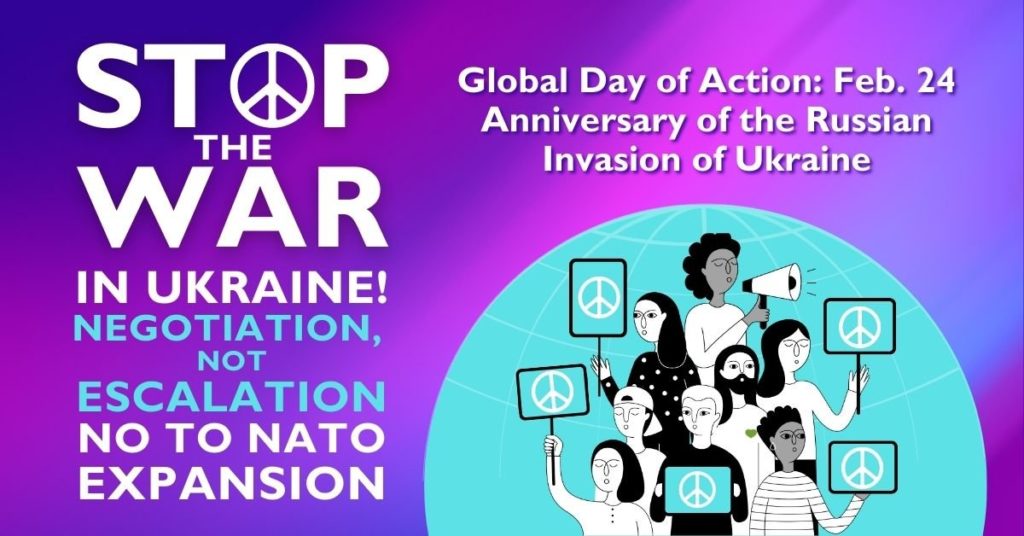
The impact of this opposition was starkly evident on 20 April 2024, when 112 Republican members voted against an aid package for Ukraine, despite theoretical bipartisan support. This delay had severe consequences on the Ukrainian front, leading to increased casualties among Ukrainian troops and a gradual retreat by the Ukrainian Armed Forces.
The Libertarian Party and conservative think tank influence
The Libertarian Party, one of the most popular non-parliamentary parties in the US, has taken a shockingly callous stance against aiding Ukraine. Their Nevada branch's statement, "Let Ukraine burn," epitomizes their position.
The party's longtime member Ron Paul has been justifying Russia's actions for years. In 2014, he supported the Russian occupation of Crimea, and after Russia's full-scale invasion, he wrote that the "Ukraine crisis also provides an excuse for Congress to do what Congress does best: increase federal spending."
Paul, a frequent guest on Russian state TV RT, disseminates his views through the Ron Paul Institute for Peace and Prosperity. His son, Senator Rand Paul, echoes these sentiments, stating on social media: "Ukrainian flags fly in the chamber of the UNITED STATES House of Representatives as they vote to send more of your hard-earned money to a corrupt foreign regime."
Corruption problem in Ukraine is exaggerated, European experts assert
Conservative think tanks play a pivotal role in this narrative. The Heritage Foundation, a center-right think tank, has consistently advocated for ending support to Ukraine. In early 2024, it was embroiled in a scandal when The Guardian reported that during a closed session at a Heritage conference, representatives of the Hungarian government tried to convince American politicians and Republicans to block support for Ukraine.
Kevin Roberts, president of the Heritage Foundation, responded angrily to these reports but emphasized his pride in his "relationship with Prime Minister Orbán, whose leadership in Hungary on immigration, family policy and the importance of the nation-state is a model of conservative governance."
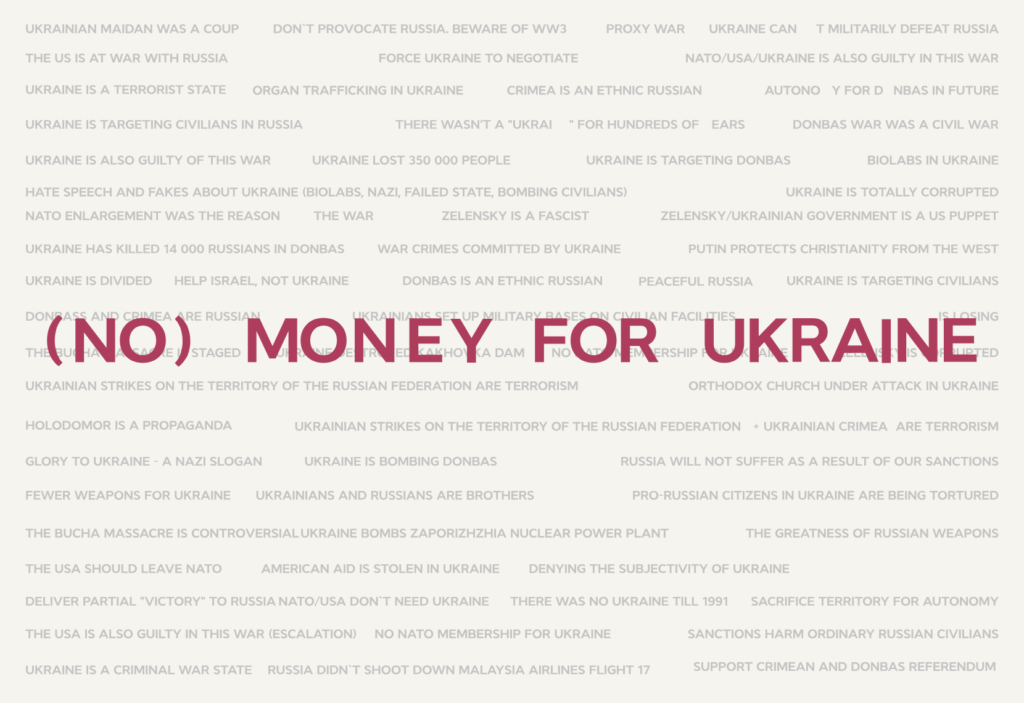
Another influential organization is the Quincy Institute for Responsible Statecraft, founded with support from liberal George Soros and libertarian Charles Koch. Despite their claim of not being isolationist or pro-Russian, their stance seems to align with Russian interests. They promote limiting military support, call for negotiations, and even suggest that Ukraine should concede parts of its territory to Russia.
In an article, institute members George Beebe and Anatole Lieven argue that Putin is ready for negotiations and propose leaving the occupied part of Ukraine under Russian control until a potential UN debate. They consider preserving 80% of Ukraine's territory a victory, ignoring the fact that Russia has repeatedly used ceasefires and negotiations to regroup and launch new offensives.
Media amplifiers: from far-right to mainstream
Several media outlets, spanning from the far-right to more mainstream conservative platforms, amplify anti-Ukraine narratives. Breitbart News, with 30 million users in February 2024, often frames US aid to Ukraine as a waste of taxpayer money. Under the leadership of Stephen Bannon, a former Trump advisor, the site has become more nationalistic and a mouthpiece for the far-right movement.
The Daily Wire, founded by conservative Ben Shapiro, opposes the "support as long as it takes" format. While Shapiro has criticized Tucker Carlson for being manipulative in linking American welfare to aid for Ukraine, his platform still advocates for persuading Ukraine to negotiate.
A key figure on The Daily Wire is 22-year-old influencer Brett Cooper, with 4.1 million YouTube subscribers. She tells young Americans that allocating funds to support Ukraine is a bad idea, using arguments from entrepreneur Vivek Ramaswamy about how the US government spends money on protecting the Ukrainian border instead of the American border.
Even more extreme is Infowars, a far-right website known for conspiracy theories, with a monthly audience of 6.2 million. Its editor, Alex Jones, found guilty in 2022 of spreading disinformation about a school shooting, has appeared on Russian propaganda channels like Tsargrad TV, owned by Putin associate Konstantin Malofeev.
Infowars journalists like Kellen McBreen often cite Russian officials. In his "investigation" of the attack on the Kramatorsk train station, McBreen writes, "The purpose of the Kyiv regime's strike on the Kramatorsk railway station was to disrupt the mass exodus of residents from the city and use them as human shields," directly quoting the Russian Defense Ministry. In fact, a strike on the Kramatorsk train station was executed by Russian forces.
The Russian connection: propagandists and "useful idiots"
While only about one in nine individuals in the study have clear ties to Russian entities, many echo Russian propaganda, either knowingly or as "useful idiots." The varied motivations of these diverse groups – from isolationism to Russian sympathies, from political opportunism to conspiracy theories – converge on a common goal: halting aid to Ukraine.
In May 2023, historian Sean McMeekin assured Western audiences in the conservative magazine Compact that Russia's aim was merely to install a friendlier government in Kyiv. Yet, the same month, Russia launched numerous missiles and drones at Kyiv. Compact's inaugural article, "Away from the Abyss," published on 31 March 2022, warned the US against meddling or escalating tensions with Russia. Co-signed by the magazine's founders and thirty experts, including Dan Caldwell of the Stand Together Foundation, it coincided with Russia's withdrawal from Bucha after a deadly occupation. These cases show how influential figures often misinterpret the war, fitting hearsay into their views.
The website Veterans Today, once critical of US foreign policy, now partners with the Russian think tank New Eastern Outlook and is reportedly controlled by Russian intelligence. It propagates conspiracy theories, denies the Holocaust, and spreads almost all the craziest Russian fakes about Ukraine, such as "no Ukraine existed before 1991."
Even influential figures like Canadian psychologist Jordan Peterson rationalize Putin's actions as defending traditional Christian values against the corrosive impact of Western culture, echoing explanations provided by Russian officials to their domestic audience.
Russia Today (RT), a state-funded media outlet, is a key element of Russian propaganda in the US, promoting anti-Ukrainian narratives. In March 2024, RT's website had over 93 million visits, with 8% from the US and 3% from Canada. Until March 2022, RT America operated across the US before being replaced by RT International broadcasts. Banned from YouTube, RT moved to Rumble, which has 84 million users, including 23 million in the US Numerous American journalists, like Fiorella Isabelle, work for RT or appear as guests, continuing to disseminate Russian propaganda.
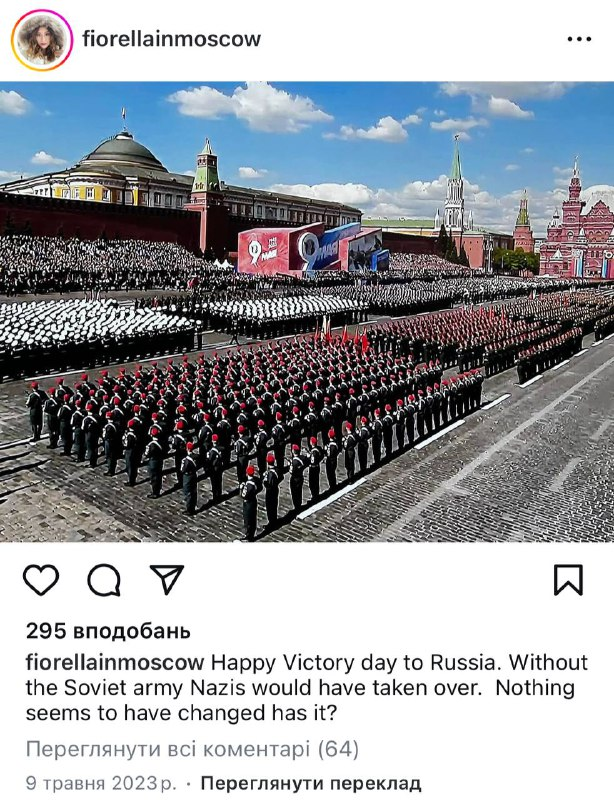
Medea Benjamin, CODEPINK co-founder, is touring the United States to promote her book "The War in Ukraine: Making Sense of a Senseless Conflict," composed of Russian propaganda narratives about Ukraine such as: "In 2014, a coup d'état took place in Ukraine with the support of the West," "Ukraine started a war against the residents of Donbas," "Crimea-Russian territory."
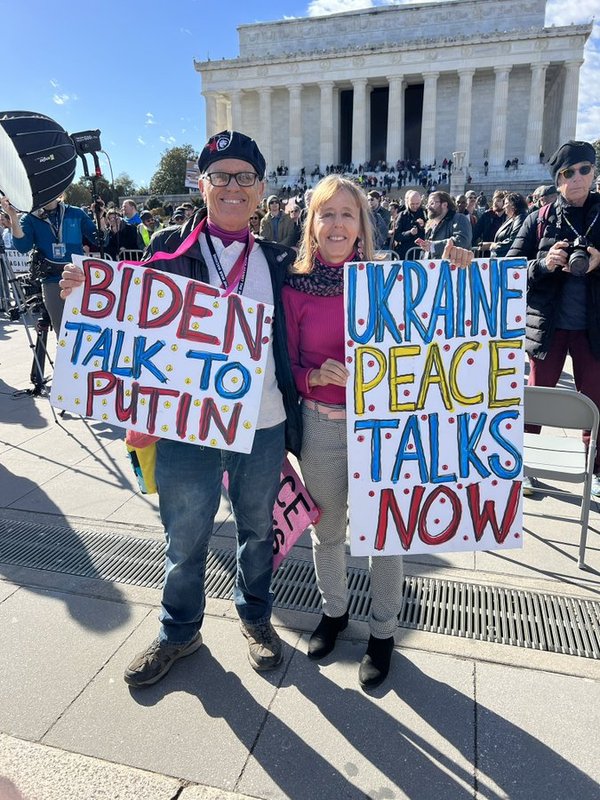
A group of Democratic Congress members "The Squad," includes Alexandria Ocasio-Cortez, Ayanna Pressley, Ilhan Omar, Rashida Tlaib, Greg Casar, Cori Bush, Jamaal Bowman, and Summer Lee. They have made anti-war speeches, urging the US to persuade Ukraine to negotiate with Russia, reduce or stop armed support and funding, and ease sanctions on Russia. On 24 October 2022, they sent a letter to President Biden advocating for a peaceful settlement to the war. However, on 20 April 2024, they all voted to support a Ukraine aid bill.
The ecosystem of anti-Ukraine narratives
The research by Texty reveals a complex ecosystem where these diverse groups amplify each other's messages.
For instance, Trump supporter Marjorie Taylor Greene attended a rally organized by the left-wing CODEPINK, demonstrating a bipartisan effort to halt aid. Brett Cooper uses arguments from Vivek Ramaswamy, while Alex Jones appears on Tucker Carlson's show.
Common narratives include:
- US taxpayer money is wasted on Ukraine's "corrupt regime."
- The war harms ordinary Americans more than it helps Ukrainians.
- Ukraine is corrupt, Nazi-dominated, and not worth supporting.
- The US should focus on its own borders, not Ukraine's.
- The war risks nuclear escalation.
- Ukraine should negotiate and cede territory for peace.
- The war in Ukraine was caused by NATO expansion and US policy.
- The 2014 Maidan was a US-sponsored coup.
- The US has biolabs in Ukraine.
- Russian war crimes like Bucha were staged.
These narratives mirror Russian manipulations aimed at depriving Ukraine of Western support. As Fiona Hill, a former US National Security Council official, stated in a December 2023 interview: "These are classic Soviet tactics – demoralizing the enemy before defeating them on the battlefield. They aim to make the enemy feel defeated and think that they have already lost, and this is precisely what Putin is doing now, stirring debates in the West."
As the 2024 US elections approach, countering these false narratives becomes increasingly critical.
Read more:
- Russian fund spends €100000s on propaganda to affect legal cases in EU leaked docs show
- Slovakia grants temporary protection to Ukrainian accused of running pro-Russian influence campaign
- Report: Western media underestimate Russian propaganda's effectiveness
- How Russian lies fracture Ukraine Propaganda's scalpel
- Russia's propaganda war: How Putin bought Germany

